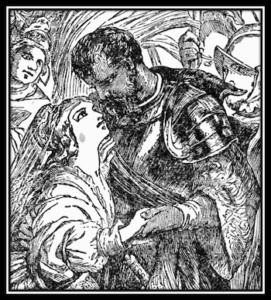
*The Tragedy of Othello was first performed on this date in 1604. This is one of the first stage classics featuring a Black lead character.
Termed The Moor of Venice, more commonly known simply as Othello, is a tragedy by William Shakespeare written around 1603. The first performance occurred at Whitehall Palace with Shakespeare’s friend Richard Burbage Othello's first interpreter. The play was entered into the Register of the Stationers Company on October 6, 1621, by the bookseller Thomas Walkley. He first published it in quarto format in 1622 and printed by Nicholas Okes. Its appearance in the First Folio (1623) quickly followed. Later quartos followed in 1630, 1655, 1681, 1695, and 1705; on stage and in print, it was a famous play.
The most common interpretation of Othello is that the title character is a black man. Sub-Saharan Africans had visited the Mediterranean long before the time in which the events of the play are set, and a portrayal of Othello as sub-Saharan adds much to the character's experience of alienation and suspicion as "a stranger in a strange land," making his psychological plight all the more striking. Moreover, Othello's failure to trust in his wife's faithfulness has been interpreted as a symptom of other characters' perception of the couple as from "two different worlds," Such conditions enable audiences to accept his tragic delusion as more plausible and pitiable. A "white" Arab would be less open to such outsider treatment and, therefore, less prone to such a violent emotional reaction; he might not be trusted but would not be considered an alien by Venetians.
Interpretations of Othello's origins as "black" in the United States were prevalent as far back as the 1930s when a play performance was banned in a southern state due to the prejudices against representing an interracial marriage. The performance included a middle-aged Black performer. Others argue that the play is not overly concerned with racial differences and that Shakespeare does not indicate the protagonist's specific race. Othello is referred to as a "Moor." Still, for Elizabethan English people, this term could refer either to the Muslim Berbers (or Arabs) of North Africa or to the people now called "black" (people of sub-Saharan African descent).
In his other plays, Shakespeare had previously depicted a Berber Moor (in The Merchant of Venice) and a black Moor (in Titus Andronicus). Modern-day readers and theatre directors lean towards the "black" interpretation, and "white" Othello’s have been rare. Modern notable role performers include Paul Robeson, Orson Welles, Richard Burton, James Earl Jones, Laurence Fishburne, Laurence Olivier, and Avery Brooks.